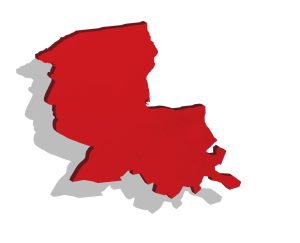Climate change refugees demonstrate need for environmental policy overhaul
September 14, 2016
This is an opinion article and does not necessarily reflect the views of The Tulane Hullabaloo.
Rising sea levels and a lack of action to prevent climate change have caused much of what was Isle de Jean Charles, Louisiana to disappear as it drowns into the surrounding Gulf of Mexico, making its people the first American refugees of climate change.
Citizens all over the United States and the world are impacted by climate change, and our government should be responsible for implementing stronger policy to combat it.
This island in southeast Louisiana is home to the Biloxi-Chitimacha-Choctaw Native American tribe, but because of the flooding that worsens each day, approximately 60 people are being relocated before the island disappears.
Despite effects of climate change that are being felt around the world, many people continue to argue it is not a real issue and thus should not be an outlet for government spending. Some believe that the carbon emissions made by humans are too insignificant to cause much damage and that any “warming” in the past century is merely a result of Earth’s natural processes.
The only way to prevent another Isle de Jean Charles is to stop arguing about whether or not this is an issue and actually work to reduce carbon dioxide emissions.
Isle de Jean Charles was once a 22,000 acre island, and now consists of just 320 acres. Chief Albert Naquin has spent the past 13 years working to get funding to combat the effects of global warming on the island, and the United States government recently granted the island $48 million to move the entire community.
“We’re going to lose all our heritage, all our culture,” Chief Naquin said in an interview with The New York Times. “It’s all going to be history.” This situation is not ideal for anyone on the island, but whether these people stay or go, the island is expected to fully disappear in the next 30 to 50 years.
Though to most Tulane students the coastal erosion of Isle de Jean Charles is just another story on the news, the future of climate change has the potential to affect every one of us. In less than a century, Louisiana has lost nearly 2,000 square miles of land.
New Orleans isn’t under water, but in a city so close sea level, it’s only a matter of time.
It is believed that the next United States city to sink will be Miami, whose surrounding waters are estimated to be raised two feet by 2060. Additionally, many cities are experiencing heavier flooding than ever before, flooding the people of Isle de Jean Charles began noticing years ago.
The people of Isle de Jean Charles hope to relocate as soon as 2019. At this time, it is undecided where they will go and whether or not others will be allowed to join them. Other communities across the globe, such as those in Syria, Ethiopa and numerous Pacific islands, have had similar experiences of needing to relocate as a result of climate change, and it is estimated that by the middle of this century, somewhere between 25 million and 1 billion people will be displaced for this reason.
If we aren’t equipped to stop climate change from destroying communities, our government should be responsible for anticipating areas that will be impacted and finding new homes for refugees of climate change.
The only way to prevent this from becoming a much more widespread issue is for governments across the globe to enact policy that will limit carbon dioxide emissions. This has been difficult in the past because fighting climate change is very expensive and tends to be a touchy subject in politics.
If nothing is done, however, more people around the world will find that the place they call home, whether that be a small island like Isle de Jean Charles or a large city like Miami, is being destroyed by the effects of climate change.
Isle de Jean Charles will be the United States’ first refugees from climate change, and unless our government begins to take major action, they certainly will not be the last.
Robin is a freshman at Newcomb-Tulane College. She can be reached at [email protected].









Leave a Comment